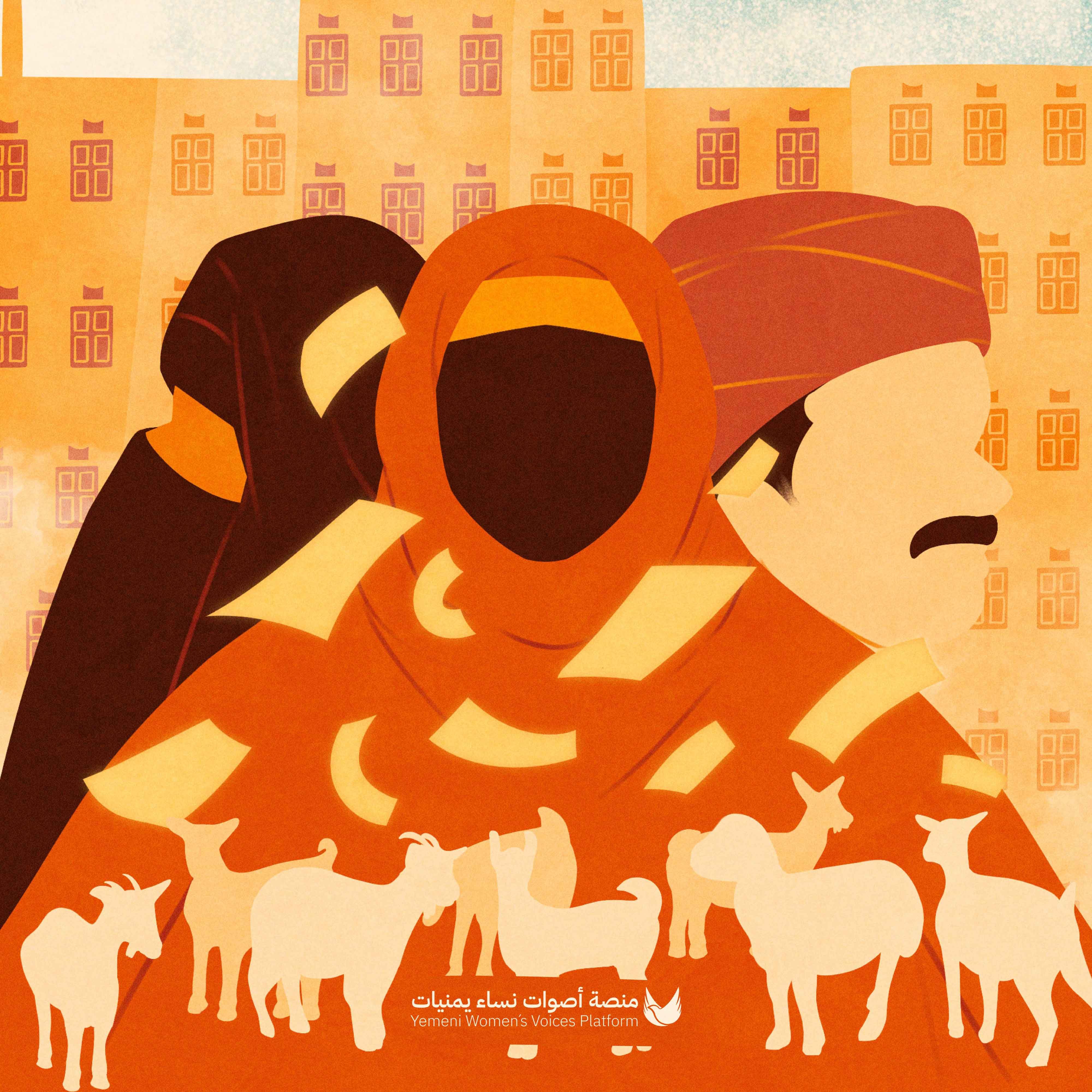In the far east of Yemen, you will find Al-Mahra Governorate, a region known for its beauty and ancient history. It is distinguished by its charming nature that extends from high mountains to white sandy beaches. Additionally, it excels in a cultural heritage rich in diversity, with roots dating back thousands of years.
Women in Al-Mahra constitute an important part of Al-Mahra community, both in the past and the present. Additionally, they play a vital role in social, economic, and cultural life, and they contribute to the cohesion of their community, highlighting its strength by supporting norms and traditions that promote participation and good collective activities..
Women in Al-Mahra have a rich traditional and cultural background dating back decades. In other words, they are distinguished by preserving ancient values and traditions, such as wearing traditional costumes, speaking Mehri language, and practicing participatory social rituals at weddings and funerals.
Courage and Challenge
Fatima bint Mashkhafi, a woman from Al-Mahra, who belongs to the Kelshat tribe, one of the most ancient Mehri tribes, lives her life freely and independently. She practices teaching and has sisters and brothers' wives who practice various activities in their social context..
Fatima is a living example of the strength and independence of women in Al-Mahra. She is an independent and ambitious woman and adheres to good customs and traditions as she goes out in her wide Mehri dress with a long tail. She does not wear modern clothes except at work or when she leaves Al-Mahra Governorate for one of the other governorates. This is a norm in Al-Mahra that is inherited as a social tradition, which cannot be ignored.
Amer Salaam, a specialist in Mehri heritage and culture, traces the strength and independence of Mehri women to ancient times, when Mehri women had a special position in the family as they must be respected and treated with a different sanctity.
Salaam tells stories about Mehri woman in ancient
times, expressing this by saying: “Most of Mehri tribes were wandering nomads
who lived on the move, so Mehri woman were the ones who sheltered the family in
the caves. Also, in tribal revenge actions, Mehri woman carried out “Guarding
or Keeping under Guard”, which means whoever had a vendetta and was being chased
by a tribe, she would guard him in her cave and protect him against the tribe
that was chasing him. This action was acceptable in the Al-Mahra community and
many people in Al-Mahra were spared from the vendettas because of Mehri woman’s
courage and her position in peacekeeping. The Mehri woman among the tribes, and
perhaps this was a result of her strong personality at that time,” he says.
Honorable housewife
In the absence or presence of a man in Al-Mahra, the woman was the one who received the guests and honored them as well as offered them drinks, like water or milk. This might lead to slaughtering and cooking meat for the guests.
To this, Salaam adds, saying: “With regard to slaughtering for honoring guests, women in Al-Mahra seeks the help of her neighbors or one of her relatives to slaughter and to cook meat for her guests, but there may be some of them who themselves slaughters livestock. Besides, what is more beautiful than that is that a Mehri woman has the right to choose her husband. For example, if a man wants to marry a woman in Al-Mahra, he would, before proposing her from her father or guardian, go to her to ask if she accepts him or not. This usually happens either in the pasture, at home, or wherever she might be. In the case that she expresses her approval, then he goes to her family to complete the engagement and wedding. It is like the wedding proposal that we hear about in other countries. In other words, Mehri women have the right to be consulted and to have an opinion just like men, and this is somewhat different from the situation of women in some other regions.”
Aziza, a woman from Al-Mahra, who works in the field of electronic marketing, agrees with the words of Salaam saying: “Mehri women are still consulted about accepting marriage and are never forced into marriage. This does not exist in our culture, and we are now working in many fields.”
In the past, Mehri women were working in the field of herding, cultivating, and raising children, but now they are working in the fields of government and private sector jobs. They become teachers, doctors, and marketers. Despite this development in the economic field, women’s social life did not undergo any change, and they are still keeping their customs and traditions.
The women in Al-Mahra Governorate are considered a symbol of strength and positive influence. They are a true embodiment of the concept of gender. They must be considered as an example of true strength in Yemeni society for what they have been providing for their community for decades.